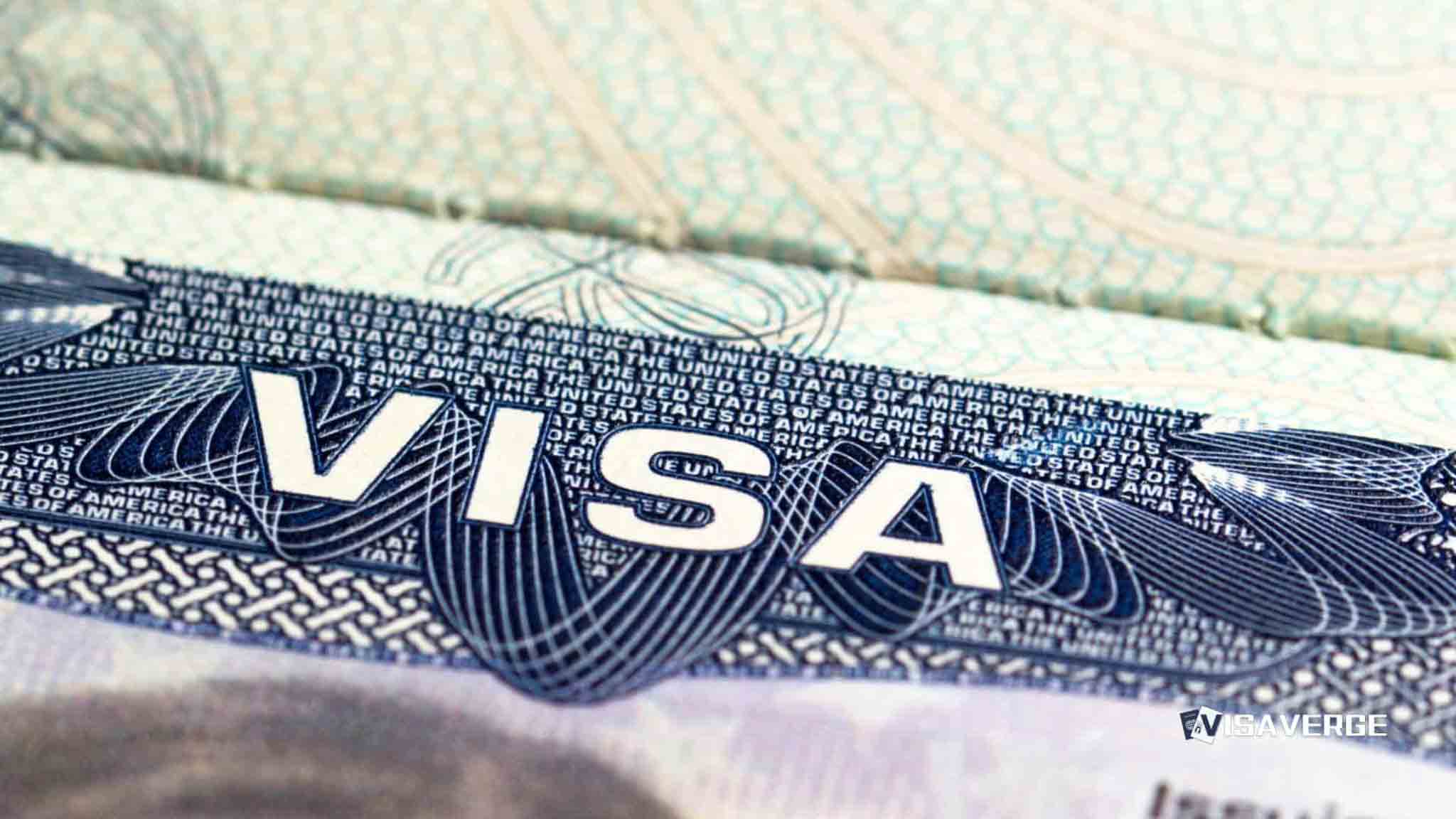Understanding the H-1B Visa Cap Exemptions
Navigating the world of work visas can be quite a challenge, especially when it comes to the sought-after H-1B visa for specialty occupations in the United States. Each year, there is a limited number of H-1B visas issued, a limit known as the “cap.” But did you know there are exceptions to this cap?
If you or someone you know is hoping to apply for an H-1B visa, learning about these exemptions is crucial. It could mean the difference between having to wait for another year and starting a new job in the United States right away.
Who is Exempt from the H-1B Cap?
Here are a few categories of exemption from the H-1B cap that could apply:
- Higher Education Institutions: Firstly, if you’ve been offered a job at an institution of higher education, you might be in luck. Universities and related nonprofit entities are not subject to the H-1B cap. This means that qualified employees can apply for an H-1B visa any time during the year.
- Nonprofit Research and Governmental Research Organizations: Positions at nonprofit research organizations or governmental research organizations also qualify for cap exemptions. If your role involves either type of research institution, you won’t have to worry about the cap.
- Previously Counted Applicants: Importantly, if you’ve been granted an H-1B visa in the past 6 years and haven’t reached the maximum allowed duration of stay, you may not be subjected to the cap. This is great news for those looking to transfer employers or change job positions.
- Extensions and Concurrent Employment: Those seeking an extension of their H-1B visa or applying for concurrent employment with another H-1B employer also falls under the exemptions.
Cap-Exempt Petitions and the American Competitiveness in the Twenty-First Century Act (AC21): Some petitions filed on behalf of H-1B workers may also be exempt under the American Competitiveness in the Twenty-First Century Act (AC21). If an exemption under AC21 applies, eligible candidates could potentially skip the cap-affected queue.
Why are Exemptions Important?
“Cap-exempt petitions significantly increase the chances for certain individuals and organizations to obtain H-1B visa approval without being restrained by the limited number of visas available each year,” explains an immigration law expert. The exemptions open doors for academia, research, and individuals previously counted against the cap, allowing them to contribute their skills and knowledge to the U.S. without the barrier of cap limitations.
For More Information:
Understanding your eligibility for a cap-exempt H-1B visa is vital to planning your career move to the United States. The rules and regulations surrounding H-1B visas can be complex. Hence, it’s recommended to access official resources for the most current and comprehensive information. Visit the U.S. Citizenship and Immigration Services (USCIS) website for in-depth details and guidance.
Finally, considering how quickly immigration laws can change, staying informed through reliable sources or consulting an immigration attorney can be crucial. For many, obtaining an H-1B visa represents the start of a new chapter in their professional lives, and navigating the process with the right knowledge can lay the groundwork for a smooth transition.
So there you have it, my visa-exploring amigos! Understanding the H-1B cap exemptions is like discovering a secret cheat code. But don’t stop here, my friends! If you crave more juicy visa knowledge, head on over to visaverge.com and unlock a treasure trove of information. Happy visa hunting!
FAQ’s to know:
FAQ 1: Who is exempt from the H-1B cap?
Answer: Certain categories of individuals and organizations are exempt from the H-1B cap. This includes employees offered jobs at institutions of higher education and nonprofit entities related to universities, as well as positions at nonprofit research and governmental research organizations. Additionally, individuals who have previously been granted an H-1B visa within the past 6 years and are seeking an extension or concurrent employment, fall under the exemptions.
Keywords: H-1B cap, exemptions, higher education institutions, nonprofit research organizations, governmental research organizations
FAQ 2: Why are exemptions important for H-1B visas?
Answer: Exemptions from the H-1B cap are important because they significantly increase the chances for certain individuals and organizations to obtain H-1B visa approval without being constrained by the limited number of visas available each year. These exemptions allow academia, research institutions, and individuals previously counted against the cap to contribute their skills and knowledge to the United States without the barrier of cap limitations.
Keywords: H-1B visa, exemptions, cap limitations, academia, research institutions
FAQ 3: Where can I find more information about cap-exempt H-1B visas?
Answer: To understand your eligibility for a cap-exempt H-1B visa, it is important to access official resources for the most up-to-date and comprehensive information. Visit the U.S. Citizenship and Immigration Services (USCIS) website for in-depth details and guidance on the rules and regulations surrounding H-1B visas. Considering how quickly immigration laws can change, it may be valuable to stay informed through reliable sources or consult an immigration attorney to ensure a smooth transition.
Keywords: cap-exempt H-1B visa, eligibility, USCIS website, reliable sources, immigration attorney
What did you learn? Answer below to know:
- True or False: Nonprofit research organizations are exempt from the H-1B visa cap.
- Which category of exemption allows individuals to transfer employers or change job positions without being subjected to the H-1B cap? a) Higher Education Institutions b) Nonprofit Research and Governmental Research Organizations c) Previously Counted Applicants d) Extensions and Concurrent Employment
- What is the purpose of cap-exempt petitions for H-1B visas? a) To bypass the limited number of visas available each year b) To expedite the visa application process c) To increase the chances of receiving visa approval for academic positions d) To prioritize applicants from nonprofit institutions
Learn Today: Key Terms Explained
Glossary or Definitions:
- H-1B Visa: A non-immigrant visa that allows U.S. employers to hire foreign workers in specialty occupations. It is widely sought after by individuals with specialized knowledge or advanced degrees in fields such as technology, engineering, and science.
-
H-1B Visa Cap: The limit on the number of H-1B visas that can be issued each fiscal year. The current cap is set at 85,000, with 65,000 reserved for general applicants and an additional 20,000 for applicants with advanced degrees from U.S. universities.
-
Exemption: An exception or exclusion from a rule or requirement. In the context of H-1B visas, exemptions refer to categories of individuals or organizations that are not subject to the H-1B cap, allowing them to apply for the visa at any time during the year.
-
Higher Education Institutions: Universities and related nonprofit entities that are exempt from the H-1B cap. Individuals offered jobs at these institutions do not have to worry about the limited number of visas and can apply for an H-1B visa any time during the year.
-
Nonprofit Research and Governmental Research Organizations: Nonprofit research organizations or governmental research organizations that qualify for cap exemptions. Individuals employed by these organizations or involved in research roles in these institutions are not subject to the H-1B cap.
-
Previously Counted Applicants: Individuals who have been granted an H-1B visa within the past 6 years and have not reached the maximum allowed duration of stay. These individuals may not be subjected to the H-1B cap and can transfer employers or change job positions without being constrained by the cap.
-
Extensions and Concurrent Employment: Those seeking an extension of their H-1B visa or applying for concurrent employment with another H-1B employer. These individuals are also exempt from the H-1B cap.
-
American Competitiveness in the Twenty-First Century Act (AC21): A U.S. immigration law that provides certain exemptions and benefits to H-1B workers. Some petitions filed on behalf of H-1B workers may be exempt under AC21, allowing eligible candidates to potentially skip the cap-affected queue.
-
Cap-Exempt Petitions: H-1B petitions that are not subject to the H-1B cap due to exemptions provided by law. These petitions give individuals and organizations a higher chance of obtaining H-1B visa approval without being restrained by the limited number of visas available each year.
-
USCIS: U.S. Citizenship and Immigration Services. The government agency responsible for overseeing lawful immigration to the United States. The USCIS website provides detailed information and guidance on H-1B visas and other immigration-related matters.
-
Immigration Attorney: A legal professional who specializes in immigration law and provides advice and assistance to individuals and organizations navigating the immigration process. Consulting with an immigration attorney can be beneficial, especially given the complexities and frequent changes in immigration laws.
Note: This glossary provides definitions for specialized terminology related to the H-1B visa and cap exemptions discussed in the provided content.














